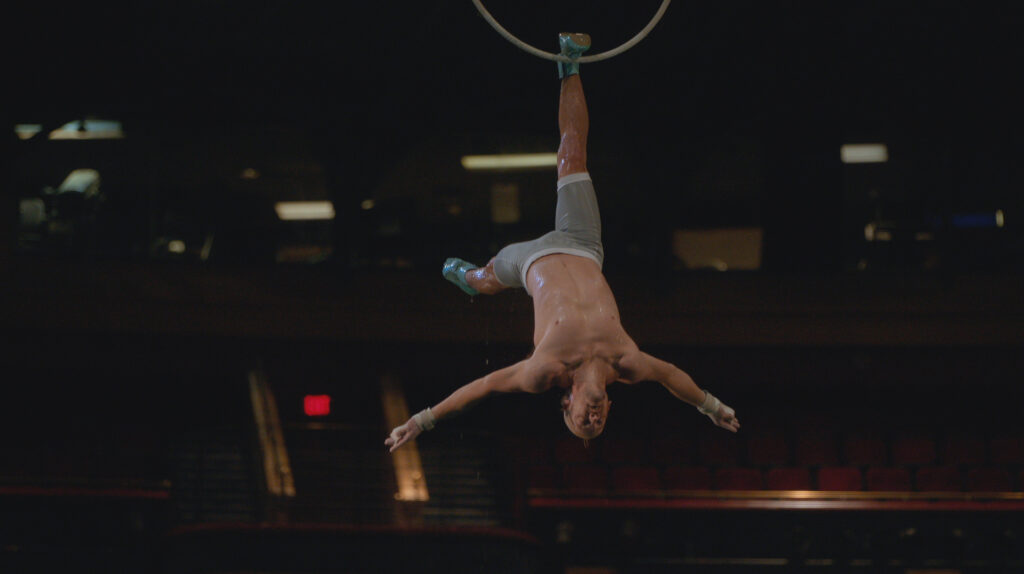Dawn Porter is an award-winning writer and producer. Her work has been featured on HBO, Netflix, CNN, PBS, MSNBC, MTV Films, and other platforms. Porter’s 2016 film “Trapped,” which explores laws regulating abortion clinics in the South, won the Special Jury Social-Impact Prize at the Sundance Film Festival and a Peabody Award. Her other credits include “37 Words,” “The Way I See It,” “John Lewis: Good Trouble,” and “Gideon’s Army.” She is the recipient of the 2022 Critics Choice Documentary Awards Impact Award, and is an honoree at the 2022 Gracies Leadership Awards.
“Cirque du Soleil: Without a Net” is screening at the 2022 DOC NYC film festival, which is running from November 9-27.
W&H: Describe the film for us in your own words.
DP: “Cirque du Soleil: Without a Net” is an extraordinary journey back from the brink of collapse. Cirque almost did not survive the pandemic. Their staff experienced significant hardship and isolation. A year later, the reopening of live entertainment at large was uncertain but it was also too important to let go. We embedded backstage at “O,” Cirque’s most popular show, and filmed for two months as the cast and crew worked tirelessly to put their show back together. What we uncovered was a story fraught with uncertainty but also full of hope and resilience.
W&H: What drew you to this story?
DP: I am a news junkie, and a year into the pandemic, I was completely exhausted by the state of the world. I wanted to focus on something else. I’ve always been fascinated by the beauty and artistry of Cirque and jumped at the opportunity to explore their world.
W&H: What do you want people to think about after they watch the film?
DP: Something that I thought about a lot while making this film was the idea of connection. All of us lost a sense of connection at some point during the pandemic. Many are still searching for it. What is it about gathering in person that can’t be replicated? A feeling that is indescribable and yet, essential. The experience of sitting in a theater and watching a Cirque du Soleil show has everything to do with that connection — between the artists on stage, the crew in the background, and the audience in their seats. I hope this film can help remind us all how magical it is when we come together.
W&H: What was the biggest challenge in making the film?
DP: Filming every day for two months was both a blessing and a curse. Think about how visual a Cirque show is — people literally do flips while flying through the air. “O” is a water-based show, so there are complicated and intricate details unfolding both above and below the surface. We filmed all of it, from multiple angles, rehearsal to rehearsal, day after day. We were fortunate to capture hours and hours of stunning footage. But when it came to post-production, it was a challenge to sift through the sheer volume of footage to find the best moments.
W&H: How did you get your film funded? Share some insights into how you got the film made.
DP: It is privately financed.
W&H: What inspired you to become a filmmaker?
DP: I felt I had something to say.
W&H: What’s the best and worst advice you’ve received?
DP: Best advice: don’t be deterred from your goals as long as you know who you are. If you know who you are and what you want, your inner voice is a good guide.
Worst advice: Buy crypto! I didn’t — I don’t buy things I don’t understand.
W&H: What advice do you have for other women directors?
DP: My advice for female directors is the same as for any director: figure out what you want to say and keep asking yourself if you are saying it.
W&H: Name your favorite woman-directed film and why.
DP: “The Oath” by Laura Poitras. It’s so honest.
W&H: What, if any, responsibilities do you think storytellers have to confront the tumult in the world, from the pandemic to the loss of abortion rights and systemic violence?
DP: I think it’s a given that documentary storytellers are driven by a desire to right wrongs and confront injustice. But at this point, the field is crowded and audiences are dealing with information overload. We have a responsibility to make sure we create stories that go beyond just showing the terrible thing that exists in the world: what else can we say with our story?
W&H: The film industry has a long history of underrepresenting people of color on screen and behind the scenes and reinforcing – and creating – negative stereotypes. What actions do you think need to be taken to make Hollywood and/or the doc world more inclusive?
DP: There are so many people involved in making a film — executives, financiers, directors, agents, writers, producers, DPs, etc. The decisions that each of them make compound and can have a huge impact on which stories are told, and by whom. The more people of color we have in decision-making positions throughout the industry, the better equipped we are to tell authentic stories.







